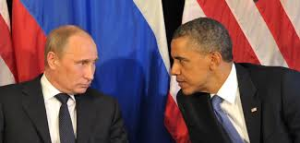 The broken windows theory explains how, in the human ecosystem, symptoms or attitudes of neglect , abuse or vandalism provoke or ‘spread ‘ more of the same type, while actions of civic concern, urban improvement and politeness, reinforce the tendency for these positive behaviors.
The broken windows theory explains how, in the human ecosystem, symptoms or attitudes of neglect , abuse or vandalism provoke or ‘spread ‘ more of the same type, while actions of civic concern, urban improvement and politeness, reinforce the tendency for these positive behaviors.
In another concurrent theory, former New York Democratic Senator Patrick Moynihan, in 1993, explains the phenomenon of ‘normalizing’ the abnormal, or Defining deviancy down (crime or perversion) based on Durkheim and Erikson and sociological studies at that time. Faced with an increase in abnormal behavior, there are tendencies to trivialize and tolerate what was once considered unacceptable. So, when it is perceived in society that these behaviors are more frequent, is taken as an irreversible change. “Everyone does it” argue teenagers, and the parents give in to the ‘inevitable’ change in mores.
Therefore it is key to analyze the effect of the Kinsey report which 60th anniversary we recalled recently. It was a historic moment and a breaking of taboos, claiming that many perversions and sexual deviations were common and widespread in the population, and thus opened the way to the so-called sexual revolution. “If everyone does it” it must be “normal” and so, why shouldn’t I do it too?
But Kinsey’s “normal” was the population of prisons, male prostitutes and volunteers to share what for most was taboo. Many, from the American Association of Statisticians to Maslow, concluded that the study did not reflect real society. However, the broken windows effect, based on false conclusions, had already happened.
Today, under the banner of secular liberalism , “normalizing” is climed for everything: different “types” of families, divorce, abortion, pornography, pedophilia, sadism, casual and recreational use of sex and drugs, and sex with animals. Out of weariness we “normalize” vulgarity and obscenity on television, increase in crime, bureaucratic ineptitude, corruption of politicians, alcoholism and mental disorders. We are losing sensitivity and everything seems normal and inevitable .
But Moynihan warns that these behaviors are not merely personal choice or a matter of opinion. They have negative effects that result in serious public health problems, increased public spending and social breakdown and that the response begins by resisting the trivialization and not acceptin them as “normal”.

